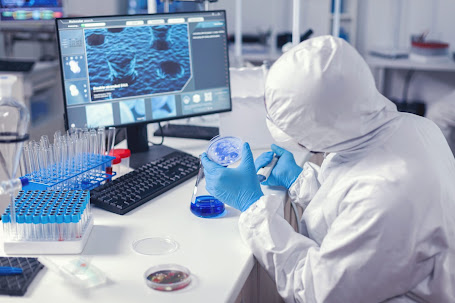What Is the Role of Regenerative Medicine in Healthcare?
Introduction:
In the ever-evolving landscape of healthcare, Regenerative medicine in Dubai emerges as a beacon of hope, promising to revolutionize treatments and outcomes. This article delves into the intricate web of What Is the Role of Regenerative Medicine in Healthcare? and sheds light on its transformative power.
Regenerative Medicine: A Panacea for Healing
Regenerating Tissues for Optimal Recovery Regenerative medicine spearheads the science of repairing and rejuvenating damaged tissues. From chronic injuries to degenerative diseases, this approach facilitates the body's natural ability to heal itself, fostering optimal recovery.
Harnessing the Power of Stem Cells
Central to regenerative medicine is the utilization of stem cells. These versatile cells possess the remarkable ability to differentiate into various cell types, promoting tissue regeneration. This groundbreaking approach opens avenues for treating conditions previously deemed incurable.
Revolutionizing Orthopedic Care In orthopedics, regenerative medicine plays a pivotal role in treating musculoskeletal disorders. Procedures like platelet-rich plasma (PRP) therapy and stem cell injections offer non-invasive alternatives, accelerating healing and minimizing recovery times.
Transformative Impact on Chronic Conditions
Addressing Cardiovascular Challenges Regenerative medicine extends its reach to cardiovascular health, offering innovative solutions for heart diseases. Stem cell therapies show promise in repairing damaged heart tissues, potentially transforming the management of cardiovascular conditions.
Managing Neurological Disorders The role of regenerative medicine expands into neurology, where it holds potential for treating neurological disorders. Stem cell treatments aim to repair damaged neural tissues, providing hope for conditions like Alzheimer's and Parkinson's disease.
Diabetes Management through Cellular Therapy For individuals battling diabetes, regenerative medicine presents a glimmer of hope. Cellular therapies target pancreas regeneration, exploring avenues to manage and potentially cure this prevalent metabolic disorder.
What Is the Role of Regenerative Medicine in Healthcare?
Promoting Precision Medicine Regenerative medicine aligns seamlessly with the concept of precision medicine. Tailored treatments, based on an individual's unique genetic makeup, enhance efficacy, reduce side effects, and improve overall patient outcomes.
Fostering Collaborative Research Initiatives The landscape of regenerative medicine thrives on collaboration. Researchers, clinicians, and biotechnologists converge to explore novel applications, ensuring continuous advancements in the field.
Elevating Patient-Centric Approaches In the era of regenerative medicine, patient-centric care takes center stage. Tailored treatments, minimal invasiveness, and reduced recovery times contribute to a paradigm shift towards personalized and empathetic healthcare.
Conclusion:
In conclusion, the role of regenerative medicine treatment in healthcare transcends traditional boundaries, offering a promising future of healing and recovery. As we stand on the precipice of transformative medical advances, the impact of regenerative medicine reverberates across specialties, ushering in an era of personalized, efficient, and empathetic healthcare.




Comments
Post a Comment